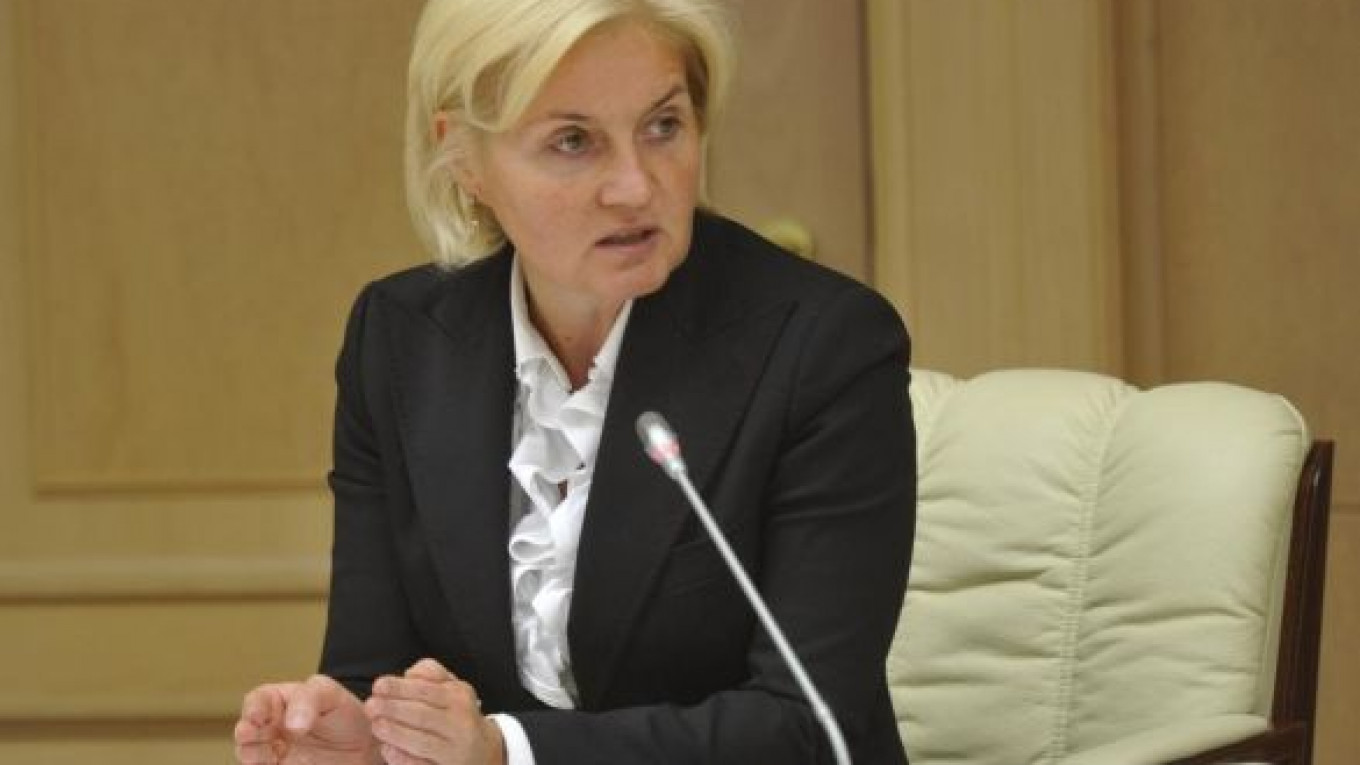Senior federal officials on Tuesday discussed at the Kremlin the country's draft plan for the next 12 years to support families with children and ultimately reverse the natural population decline.
As part of the plan to boost Russia's dwindling population — which declined for a 20th consecutive year in 2012, according to official data — authorities intend to label abortion as hatred of children and introduce a tax on divorce, among other things.
Other measures include teaming up with the church to draft family policies, obligating jobless divorced parents to pay alimony and sponsoring the creation of art that promotes traditional family values.
The government's strategy, officially called the Concept for State Family Policy for the period through 2025, was drafted by the Kremlin council for family and children in line with the National Strategy of Actions in the Interests of Children for 2012 to 2017, which was signed by President Vladimir Putin last June.
The government’s strategy to reverse population decline includes measures for a tax on divorce and labeling abortion ‘hatred of children.’
While opening Tuesday's meeting, Kremlin Chief of Staff Sergei Ivanov called restoring the prestige of the family "a sphere of national interest" in which the government and nongovernmental groups should cooperate.
"The family is the basis for a nation's sovereignty," Ivanov told the meeting. "I am firmly convinced that in our culture we must rely on the traditional family," he said, apparently in reference to gay marriages being legal in some European countries and American states.
Federal authorities have been implementing various policies since 2007 to improve the country's demography, particularly government subsidies for mothers of two or more .
Deputy Prime Minister Olga Golodets shared some good news at the meeting: The birth rate grew from 1.2 million children in 1992 to 1.9 million children in 2012.
Yet, there were 450,000 fewer women in childbearing age last year than in 1992, she said.
The average age for Russian women to give birth is 25, a "troubling sign," Golodets said, attributing the trend to the fact that women want to build a career for themselves before having children.
One factor contributing to the demographic problem is the lack of social services, like the possibility for parents to put their child in a kindergarten or send them to a summer camp at the state's expense. The deficit of such opportunities was listed as one of the "most acute" problems of Russian families with children in a booklet distributed at Tuesday's meeting.
The other "most acute" problems include poverty, the absence of housing or poor living conditions, and family conflicts over child custody and alimony.
With that in mind, two of the main areas of state family policy will be raising the living standards of families with children and solving their housing problems, the booklet said.
Other areas include improving the health of children and parents, increasing the accessibility and quality of education, developing leisure options for families with children, providing employment for teens and parents, preventing violence in the family and reinforcing spiritual and moral traditions of the Russian family.
The state considers its main tasks to be promoting traditional family values, decreasing the number of divorces, preventing abortions, supporting families with many children and families with disabled children, reducing the number of poor families and improving the living conditions of families with children, according to the text of the official strategy sent to The Moscow Times by e-mail.
Authorities are also aiming to provide accessible pre-school education and medical aid to children, create infrastructure for family leisure time, protect families "in challenging life situations" and expand the participation of religious organizations in "making decisions in the sphere of family relations."
Measures for fulfilling these tasks include "shaping a negative public attitude toward divorce as a manifestation of hatred toward children," introducing a federal tax for divorce, "stimulating the creation" of art works promoting traditional family values and establishing a flat rate for alimony that is not dependent on the parent's income or their employment status.
Contact the author at n.krainova@imedia.ru
A Message from The Moscow Times:
Dear readers,
We are facing unprecedented challenges. Russia's Prosecutor General's Office has designated The Moscow Times as an "undesirable" organization, criminalizing our work and putting our staff at risk of prosecution. This follows our earlier unjust labeling as a "foreign agent."
These actions are direct attempts to silence independent journalism in Russia. The authorities claim our work "discredits the decisions of the Russian leadership." We see things differently: we strive to provide accurate, unbiased reporting on Russia.
We, the journalists of The Moscow Times, refuse to be silenced. But to continue our work, we need your help.
Your support, no matter how small, makes a world of difference. If you can, please support us monthly starting from just $2. It's quick to set up, and every contribution makes a significant impact.
By supporting The Moscow Times, you're defending open, independent journalism in the face of repression. Thank you for standing with us.
Remind me later.






